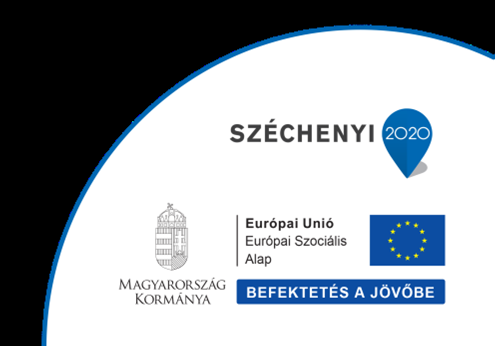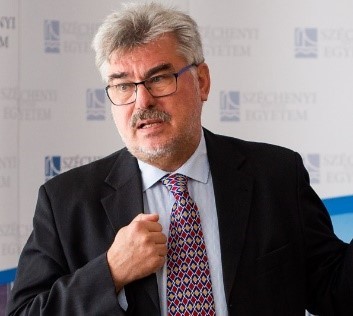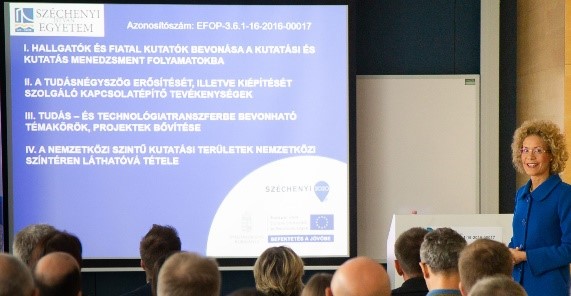PRESS CONFERENCE ON EU HUMAN RESOURCES DEVELOPMENT PROJECT AT SZÉCHENYI UNIVERSITY
 On Tuesday, 25 September 2018, Széchenyi István University held a press conference on the theme of Internationalization, generating a future supply of lecturers, researchers, students and the development of knowledge and technology transfer as tools of smart specialization at Széchenyi István University, a major project within the framework of the EU’s Human Resources Development Operational Programme (EFOP).
On Tuesday, 25 September 2018, Széchenyi István University held a press conference on the theme of Internationalization, generating a future supply of lecturers, researchers, students and the development of knowledge and technology transfer as tools of smart specialization at Széchenyi István University, a major project within the framework of the EU’s Human Resources Development Operational Programme (EFOP).

The press conference opened with a welcome speech by Dr László Komlósi, Rector’s Envoy. His own personal experience of teaching combined groups of international and Hungarian students has further convinced him of the positive value of the internationalization process in Higher Education. As evidence of the University’s commitment to internationalization, he also mentioned the provision of a range of bespoke in-service development programmes in EFL and methodology for university lecturers and researchers in preparation for their involvement in the delivery of English-taught academic programmes.
 Subsequently, Ádám Somogyi, project supervisor in the University’s Projects and Tenders Office, introduced the principal parameters of EFOP project no. 3.6.1-16-2016-00017, highlighting the duration of the project and briefly introducing members of the SZE team involved in directing and coordinating the work. He revealed that the total number of staff directly involved in the project is 124, and also provided details of the budget.
Subsequently, Ádám Somogyi, project supervisor in the University’s Projects and Tenders Office, introduced the principal parameters of EFOP project no. 3.6.1-16-2016-00017, highlighting the duration of the project and briefly introducing members of the SZE team involved in directing and coordinating the work. He revealed that the total number of staff directly involved in the project is 124, and also provided details of the budget.
Following Mr Somógyi’s introductory presentation, Dr Eszter Lukács, Vice-Rector for Educational Affairs, and Director of the Centre for International Programmes at Széchenyi István University delivered the main presentation. Dr Lukács commenced with an exposition of the results of the internationalization process, demonstrating the significant increase in the number of international students registered for full-degree programmes over the last 3 years. Going further, the Vice-Rector gave details of the 43 sending countries (for both full-degree and exchange students) as well as the top five sending countries within both categories. Clearly demonstrating the planned dynamic expansion of internationalization at Széchenyi István University, the Vice-Rector presented the range of 24 English-taught programmes (from Bachelors to Doctoral programmes) to be launched for academic year 2018/2019.
 In the next part of her presentation, Dr Lukács went on to elaborate on the nineteen sub-measures of the project, including the future supply of lecturers and researchers, collaboration with industrial partners, across border cooperation with HEIs, joint research projects, innovation, regional development and the ‘smart city’ concept - all of which are integral to the current University’s internationalization drive.
In the next part of her presentation, Dr Lukács went on to elaborate on the nineteen sub-measures of the project, including the future supply of lecturers and researchers, collaboration with industrial partners, across border cooperation with HEIs, joint research projects, innovation, regional development and the ‘smart city’ concept - all of which are integral to the current University’s internationalization drive.











